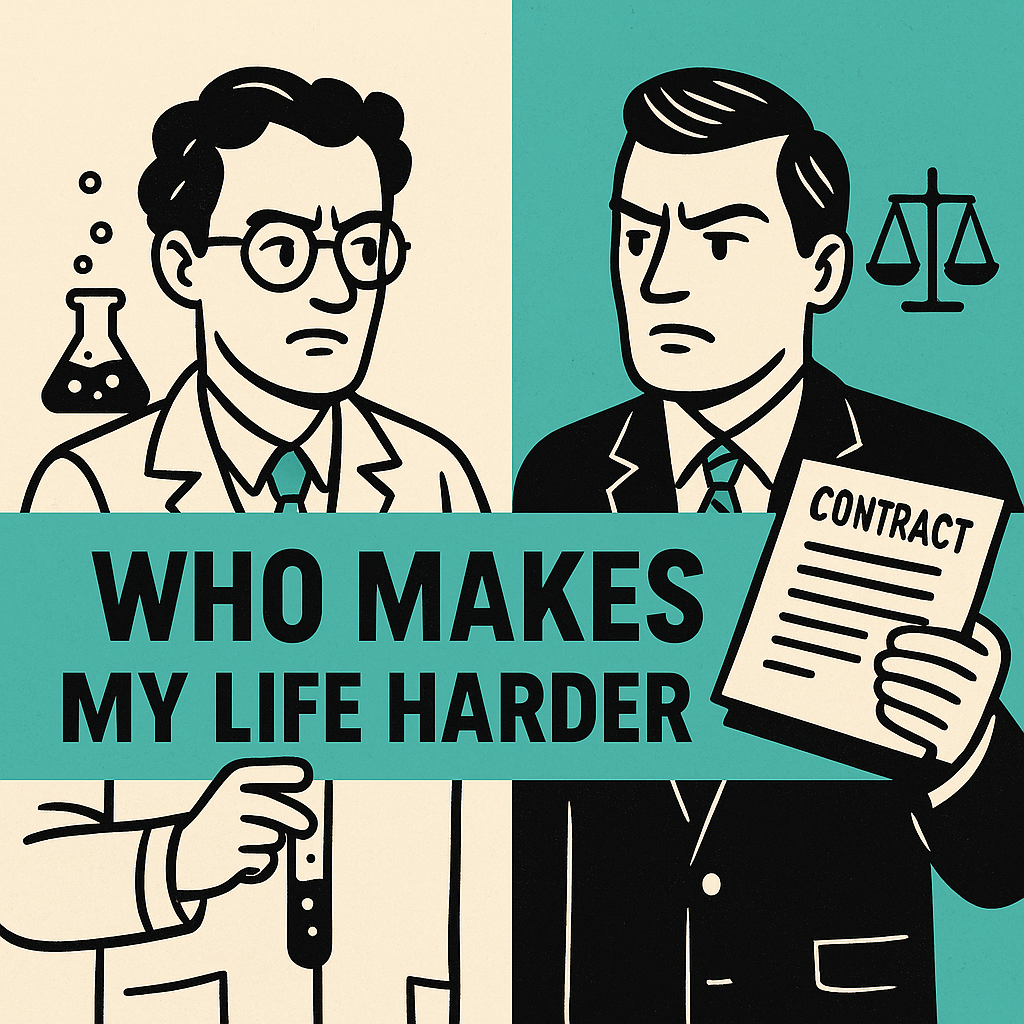The Biggest Hiring Mistakes Life Science Startups Make (and How to Avoid Them)
Startups Can’t Afford to Get Hiring Wrong

In life sciences, the right hires can mean the difference between a groundbreaking discovery and a failed startup. Yet, many biotech startups make critical hiring mistakes that slow down innovation, burn through funding, and prevent them from scaling successfully.
Here are the most common hiring pitfalls and how to avoid them.
Hiring for Prestige Over Practical Skills
It’s tempting to bring in high-profile scientists or executives with impressive resumes. However, big names don’t always translate into hands-on contributors, especially in an early-stage startup where adaptability and execution matter more than pedigree.
- How to avoid it: Focus on candidates who have a track record of building, not just managing. Look for problem-solvers who thrive in resource-limited environments.
Overlooking Cultural Fit
Startups often prioritize technical excellence but forget that early hires set the foundation for company culture. A brilliant scientist who doesn’t align with the startup’s mission or thrives only in structured environments can be disruptive.
- How to avoid it: Define your company culture early and hire people who share your vision and work style—not just technical skills.
Waiting Too Long to Hire Business and Commercial Talent
Many biotech startups focus exclusively on R&D in their early days, delaying the hiring of commercial, regulatory, and business development professionals. This creates a bottleneck when it’s time to scale.
- How to avoid it: Hire strategically for future growth, ensuring that business functions develop alongside scientific innovation.
Relying Solely on Job Boards and Inbound Applicants
Top-tier biotech talent is rarely actively job-seeking. If your hiring strategy relies on job postings alone, you’re missing out on the best candidates.
- How to avoid it: Invest in proactive headhunting and industry networking. Use specialist recruiters who understand life sciences.
Failing to Act Quickly on Top Candidates
Startups that take too long to make hiring decisions lose top candidates to competitors. Highly skilled professionals won’t wait for slow-moving companies.
- How to avoid it: Streamline your hiring process and ensure decision-makers can move quickly when the right candidate appears.
Not Offering Competitive or Creative Compensation
Early-stage startups often can’t match Big Pharma salaries. However, failing to structure compelling compensation packages (including equity, flexible work, and career growth) makes it hard to attract top talent.
- How to avoid it: Offer meaningful incentives beyond salary, such as equity, unique career opportunities, and a chance to be part of groundbreaking work.
Ignoring Soft Skills and Leadership Potential
Brilliant scientists don’t always make great leaders. A candidate who lacks collaboration, adaptability, or communication skills can create friction in small, fast-moving teams.
- How to avoid it: Look for candidates who demonstrate problem-solving, adaptability, and teamwork, not just technical expertise.
Conclusion: Get Hiring Right, Scale Faster
Biotech startups live or die by their talent decisions. Avoiding these hiring mistakes ensures you build a team that not only drives innovation but also scales efficiently.
Contact Us
Hiring is data. Retention is psychology. The best companies get both right - only the exceptional make it a strategy
















